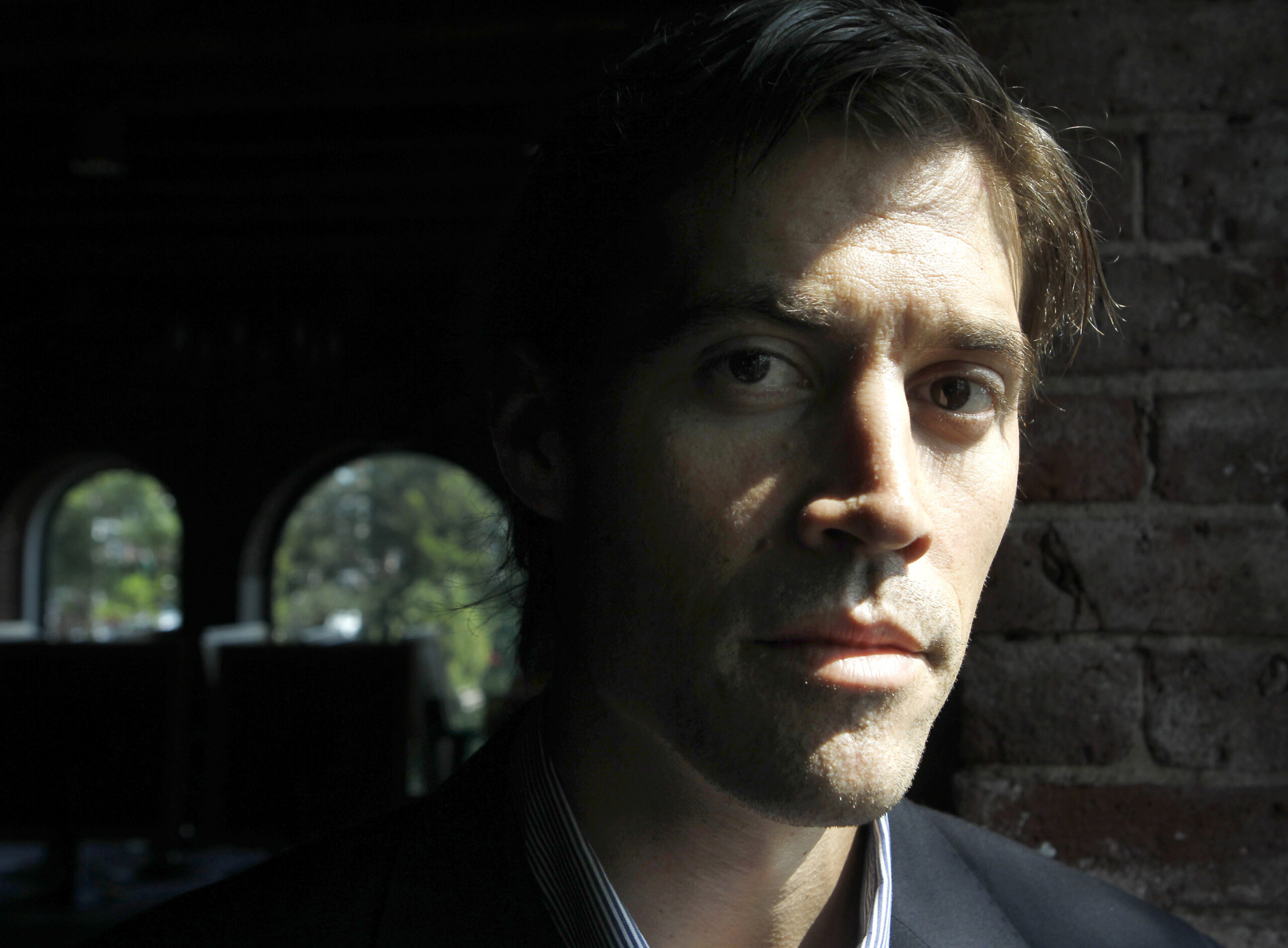 BOSTON, Mass. — Unidentified gunmen kidnapped a US journalist on Thanksgiving Day. More than a month later, he remains missing.
BOSTON, Mass. — Unidentified gunmen kidnapped a US journalist on Thanksgiving Day. More than a month later, he remains missing.
American James Foley, 39, was last seen on Nov. 22 in Idlib Province. Idlib has been the scene of heavy fighting in recent months between Syrian rebels and government forces.
Richard Engel, the chief foreign affairs correspondent for NBC News, and three members of his team, went missing in the same region in December. They were freed after their captors ran into a checkpoint manned by Ahrar Al Sham, a Syrian rebel group. Engel said a firefight erupted and two captors were killed. The rebels then escorted Engel and his team to the border with Turkey.
Little is known about the group that kidnapped Engel and his team. And it remains unclear if the same group is responsible for taking James.
James, or Jim as he is known by friends and family, previously wrote for GlobalPost inAfghanistan, Libya and Syria. In April 2011, while on assignment for GlobalPost, forces loyal to Libyan leader Muammar Gaddafi captured Jim in the eastern part of the country. Two other journalists, American Clare Gillis and Spaniard Manu Brabo, were also captured. A fourth journalist, South African Anton Hammerl, was killed. Foley, Gillis and Brabo spent 44 days in Libyan prisons before being released. Foley later returned to Libya to cover Gaddafi’s fall.
Jim has written for GlobalPost periodically since then, including from Syria. His last article for GlobalPost detailed the growing frustration among civilians in Aleppo — Syria’s largest city — with the ongoing conflict. Jim has most-recently freelanced for various news outlets, including Agence France-Presse (AFP), a French news service.
“We want Jim to come safely home, or at least we need to speak with him to know he’s okay,” said John Foley, Jim’s father. “Jim is an objective journalist and we appeal for the release of Jim unharmed. To the people who have Jim, please contact us so we can work together toward his release.”
The Foley family has set up a website dedicated to campaigning for Jim’s release.
GlobalPost CEO and Founder Philip S. Balboni said in a statement, “Over the past nearly six weeks we have been working intensively with many parties in the United States and in the Middle East to secure Jim Foley’s freedom so he can return home to his loving family. Jim is a brave and dedicated reporter who has spent much of the past year covering the civil war in Syria, believing like so many of his colleagues that this is a very important story for the American people to know more about. We urge his captors to release him.”
Foley had set off toward the border in a car about an hour before his capture. A witness, a Syrian, later recounted over the phone to a journalist in Turkey that an unmarked car intercepted Foley. The witness said men holding kalashnikovs shot into the air and forced Jim out of the car.
The witness said he noticed nothing that would indicate whether the aggressors were rebel fighters, individuals looking for a ransom, members of a pro-government militia, or a religious-based group with other motivations.
In the second half of 2012, kidnappings have proliferated across Syria. The perpetrators come from all sides of the conflict as well as from unaligned criminal groups. While kidnappings were initially attributed primarily to government forces or groups connected to the Syrian intelligence services, groups aligned with rebel forces are using this tactic in ever greater numbers. Other groups of various allegiances and motivations, including Islamic groups, have grown in numbers over the last year, are also adding to the danger.
Jabhat Al-Nusra and Ahrar Al Sham are the largest of the Islamic rebel groups. Al Sham in particular has a reputation among the opposition as some of the fiercest fighters. There are also Islamic groups loyal to the Syrian regime. The US State Department recently labeled Al-Nusra a terrorist organization. It was formed late last year to fight the Syrian government and has claimed responsibility for a number of bombings in Damascus and Aleppo.
The Syrian conflict, at first a peaceful uprising demanding government reform, turned violent in April 2011 when Syrian President Bashar al-Assad turned his security forces on protesters. Rebel fighters made up of civilians and defected Syrian army soldiers soon began to fight back. More recently the conflict has taken a dark turn as foreign governments and foreign extremists pour money, weapons and personnel into the country — all sides fighting for different ends.
In 2012, Syria was one of the most dangerous places in the world for reporters, according to theCommittee to Protect Journalists. The organization recorded 28 deaths in 2012, along with numerous kidnappings.
American journalist Austin Tice has also been missing since Aug. 13. A video surfaced on Oct. 1 that appeared to show Tice in the custody of foreign Islamic fighters. But the video’s authenticity has been questioned. The US State Department has asked the Syrian government to be “more forthcoming” with information about the missing journalist. But the Syrian government says it has no information about Tice’s whereabouts.

